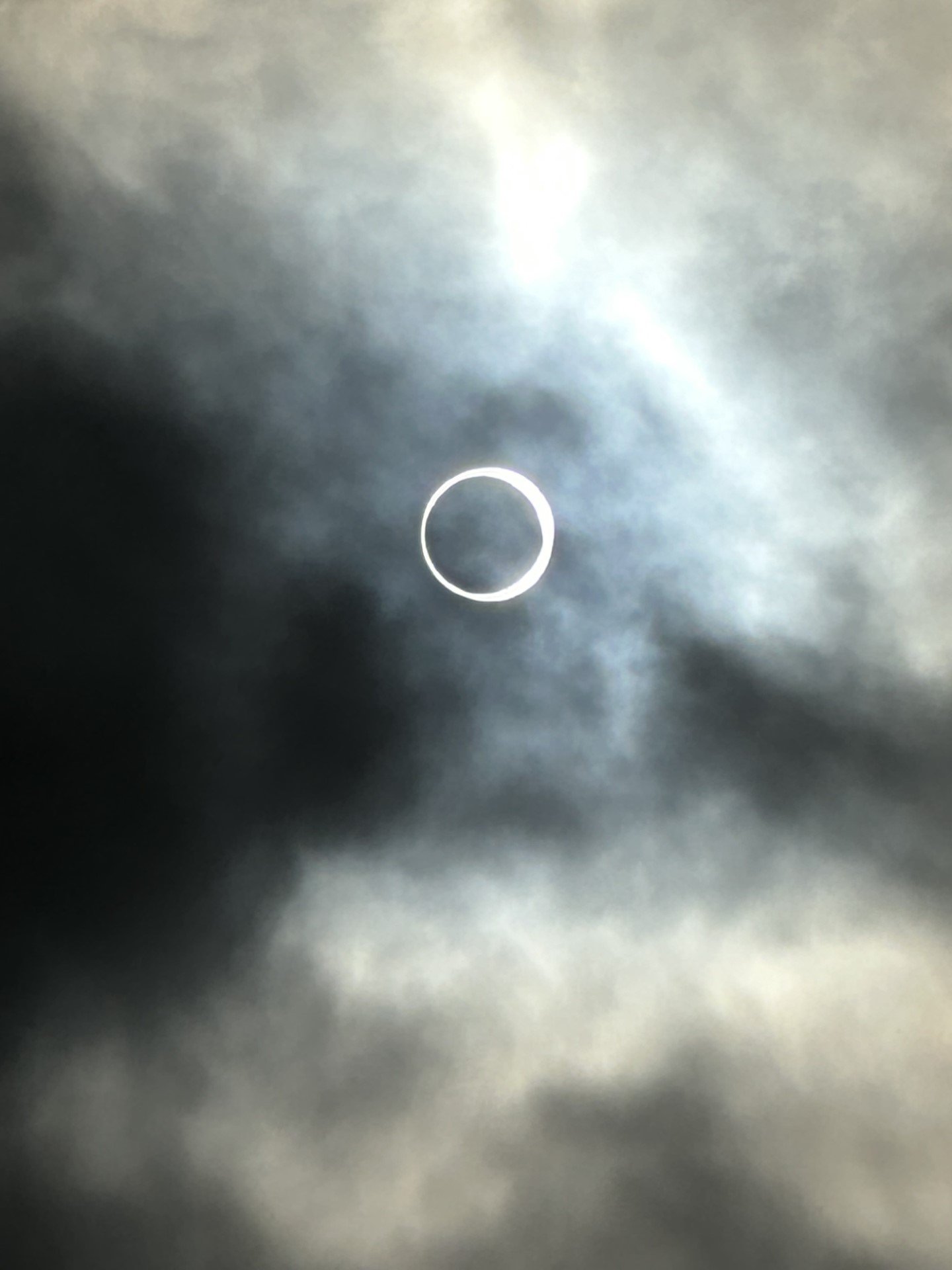The Ring of Fire
By Brooke Manuel, Skyline Editor
Photo Taken by Halie Pate
UVALDE – On October 14, the Sul Ross State University Noyce Scholars program partnered with the National Solar Observatory, the National Science Foundation and NASA to host an eclipse viewing at the Southwest Texas Junior College softball field in Uvalde.
SRSU Noyce Scholars Madeline Haas, John Aguero, Halie Pate and Melody Martinez traveled from Alpine to Uvalde for the eclipse viewing where they worked in cooperation with scientists from the National Solar Observatory to educate students from first to twelfth grade on the eclipse. Protective eclipse glasses were provided to attendees and different activities arranged to teach students about the surface of the sun.
Andrea Rivera, an SRSU Noyce Scholar who attends the Uvalde campus, said that the NSO scientists were extremely friendly and able to explain things in a way that was interesting and easy to understand, even for elementary school aged children.
The annular eclipse was also livestreamed at the event in Uvalde.
An annular eclipse occurs when the Moon passes between Earth and the Sun partially obscuring the view of the Sun from a small part of the Earth.
“Over the next 6 months, [the SRSU Noyce Scholars Program] will be participating in the Eclipses en la Frontera program which aims to provide STEM educational support, training, and mentoring opportunities to the entire Texas Southwest region to assist in improving our understanding of the universe, eclipses, and best teaching practices,” Jennifer Miller-Ray, Sul Ross’ associate professor of education, said.
On April 8, 2024, the total eclipse will be livestreamed from Eagle Pass, Tx., which falls within the Path of Totality. Total eclipses only occur in the area every 300 years or so.
“The Noyce en la Frontera program provides scholarships and educational outreach opportunities to assist math, biology, and geology majors in becoming a highly qualified middle school or high school teacher,” Miller-Ray said.
